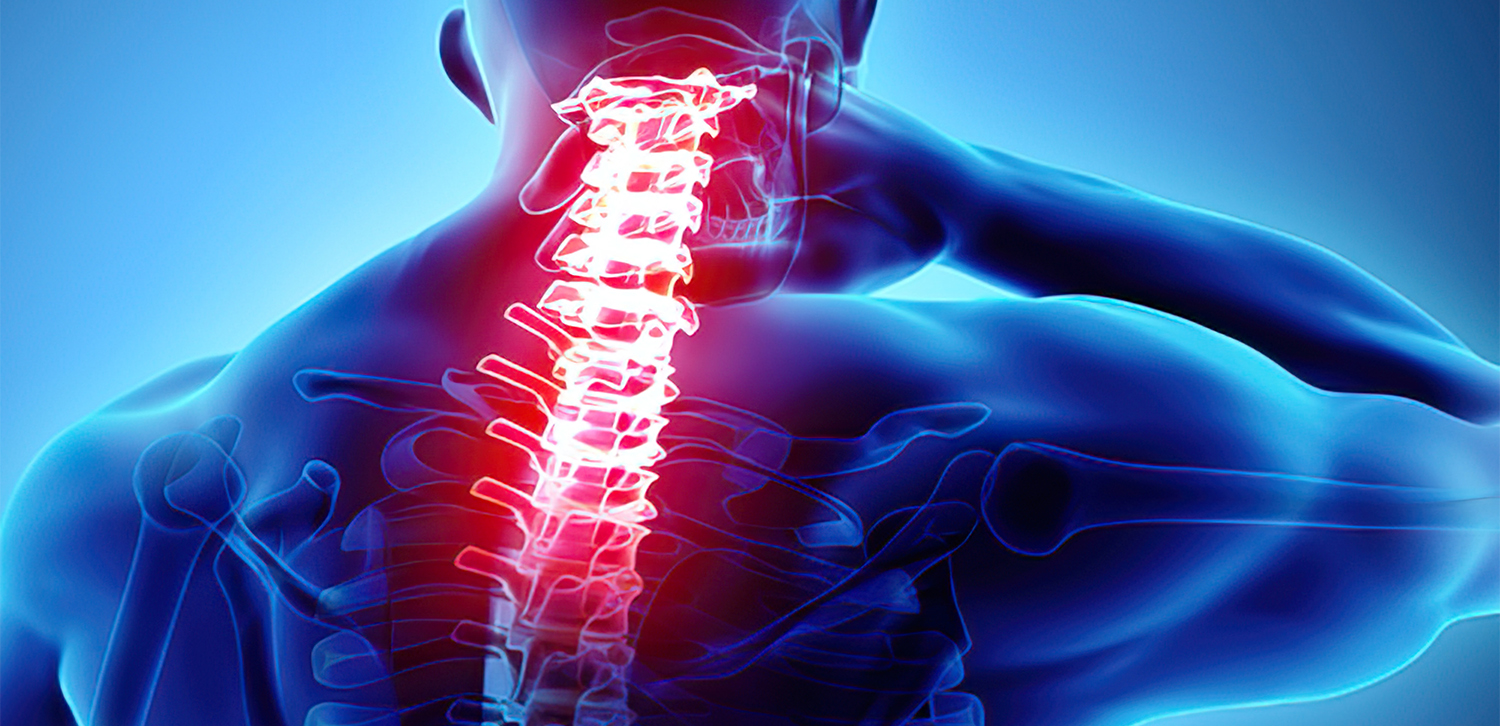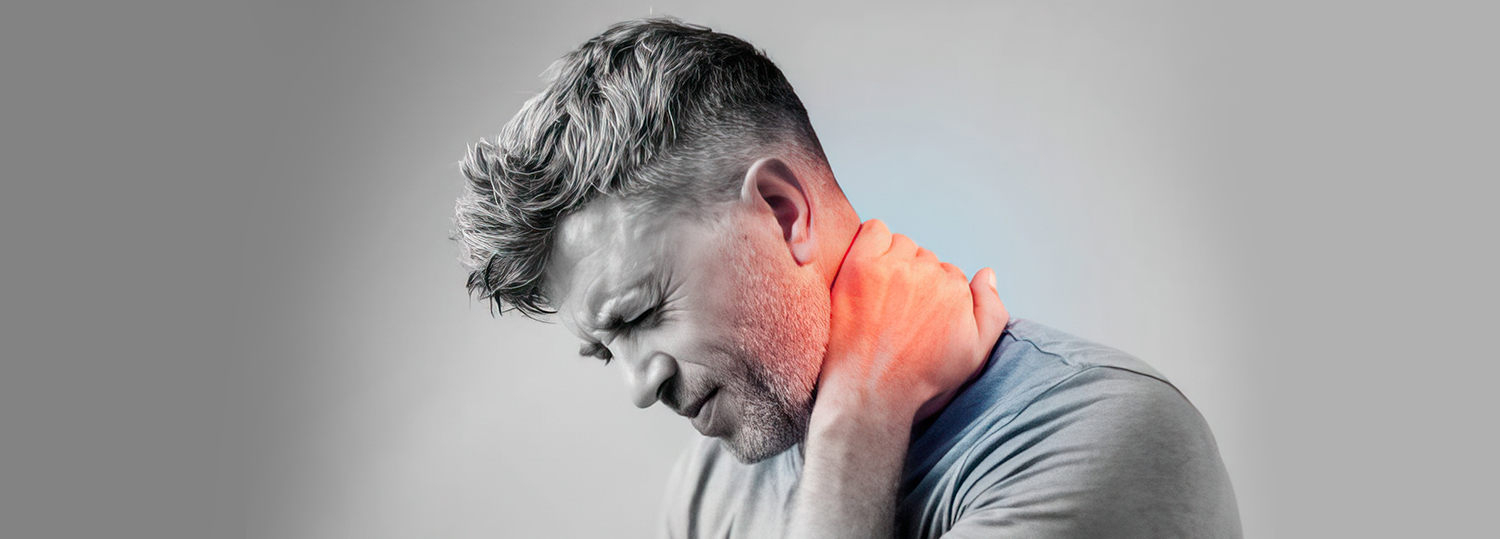NECK PAIN

What is Neck Pain?
The part of the spine that supports your neck is called the cervical spine. In addition to supporting the weight of the head, the cervical spine must allow for a significant amount of movement. Unlike the rest of the spine, which is relatively protected from injury, the cervical spine has a relatively small number of muscles and ligaments. These muscles and ligaments surround and protect the spine from being injured.
Causes of Neck Pain
Many people experience neck pain occasionally. In most cases, their pain or stiffness is due to poor posture, overuse, a fall, or sports injuries.
- Muscle strains. Overuse injuries, such as too many hours hunched over your computer or smartphone, often triggers muscle strains. Even minor things, such as reading in bed or gritting your teeth, can strain neck muscles.
- Worn joints. Just like the other joints in your body, your neck joints tend to wear down with age. Osteoarthritis causes the cushions (cartilage) between your bones (vertebrae) to deteriorate. Your body then forms bone spurs that affect joint motion and cause pain.
- Nerve compression. Herniated disks or bone spurs in the vertebrae of your neck can press on the nerves branching out from the spinal cord.
- Injuries. Rear-end auto collisions often result in a whiplash injury, which occurs when the head is jerked backward and then forward, straining the soft tissues of the neck.
- Diseases. Certain diseases, such as rheumatoid arthritis, meningitis, or cancer, can cause neck pain.

Neck pain isn’t typically something to worry about. In fact, most people find relief in a few days. However, in some cases, it can indicate serious injury or illness and require medical care.
When to Seek Medical Attention
When neck pain continues for more than a week, is severe, or is accompanied by other symptoms, immediate medical attention is recommended.
You need to seek treatment when the neck pain may result from abnormalities in the soft tissues (muscles, ligaments, or nerves) or in the vertebrae or joints of the cervical spine. The most common causes are degenerative diseases (such as arthritis) or soft tissue abnormalities following injury. In some individuals, neck problems may cause pain felt in the upper back, shoulders, or arms.
Neck Pain Treatments
Feel free to contact us toll-free at 1 (855) 4-TRIMED | 855-487-4633 to speak with one of our

